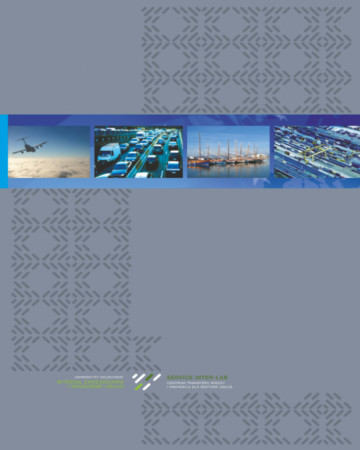
ISSN: 1644-275X
eISSN: 2353-3005
OAI
DOI: 10.18276/ptl.2016.35-07


Issue archive /
nr 3 (35) 2016
Uogólniony koszt podróży na przykładzie wyboru komunikacji miejskiej i samochodu osobowego
(GENERALIZED COST ON THE EXAMPLE OF URBAN TRANSPORT AND CAR SELECTION IN DAILY TRAVEL)
| Authors: |
Zuzanna
Kłos-Adamkiewicz
Wydział Zarządzania i Ekonomiki Usług, Uniwersytet Szczeciński |
| Keywords: | generalized travel cost urban transport passenger car cost analysis |
| Data publikacji całości: | 2016 |
| Page range: | 10 (73-82) |
| Klasyfikacja JEL: | R41 |
Abstract
Transport users frequently face the dilemma of maximizing the utility of usage of two resources-time and money in relation to the transport service. The perceived value of the transport services for passengers is the result of what he has received along of transport service full costs. It expresses the concept of generalized cost, which includes financial costs, time costs, discomfort, and other elements that can be perceived by the user as costs. The article presents the generalized cost on the example of selection of car and public transport. Car users, while comparing the ability to move by car or public transport, often do not take into account the full cost of car ownership and usage. While in urban transport uniform rates for different tariffs are adopted, whereas in the case of individual transport cost are not limited to the fuel price. The concept of generalized cost is presented in the article, based on market research carried out in Szczecin and the proposed method of calculating these costs in transport.
Download file
Article file
Bibliography
| 1. | Button, K. (2010). Transport Economics. Cheltenham: Edward Elgar Publishing Ltd. |
| 2. | Estache, A., Rus de, G. (red.). (2000). Privatization and Regulation of Transport Infrastructure. Guidelines for Policymakers and Regulators. Washington: The World Bank Institute. |
| 3. | Gorlewski, B. (2012). Kolej dużych prędkości. Uwarunkowania ekonomiczne. Warszawa: Oficyna Wydawnicza SGH. |
| 4. | Grosso, M. (2011). Variables Influencing Transport Mode Choice: A Generalized Cost Approach. Messina: Società Italiana di Economia dei Trasporti e della Logistica. Pobrane z: http://www.sietitalia.org/wpsiet/Grosso_Monica_Siet_2011.pdf (9.07.2016). |
| 5. | Szarata, A. (2005). Ocena efektywności funkcjonalnej parkingów przesiadkowych (P = R), praca doktorska, Kraków. Pobrane z: https://suw.biblos.pk.edu.pl/resources/i3/i2/i9/i8/r3298/SzarataA_OcenaEfektywnosci. pdf (9.07.2016). |
| 6. | Transportation Cost and Benefit Analysis II – Travel Time Costs. Victoria Transport Policy Institute. Pobrane z: http://www.vtpi.org/tca/tca0502.pdf (6.07.2016). |
| 7. | Załoga, E. (2013). Trendy w transporcie lądowym Unii Europejskiej. Szczecin: Wyd. Naukowe US. |
| 8. | Żochowska, R. (2013). Uogólniony koszt podróży jako kryterium oceny wariantów organizacji ruchu w czasie zajęcia pasa drogowego w mieście. Warszawa: Wyd. Politechniki Warszawskiej. |